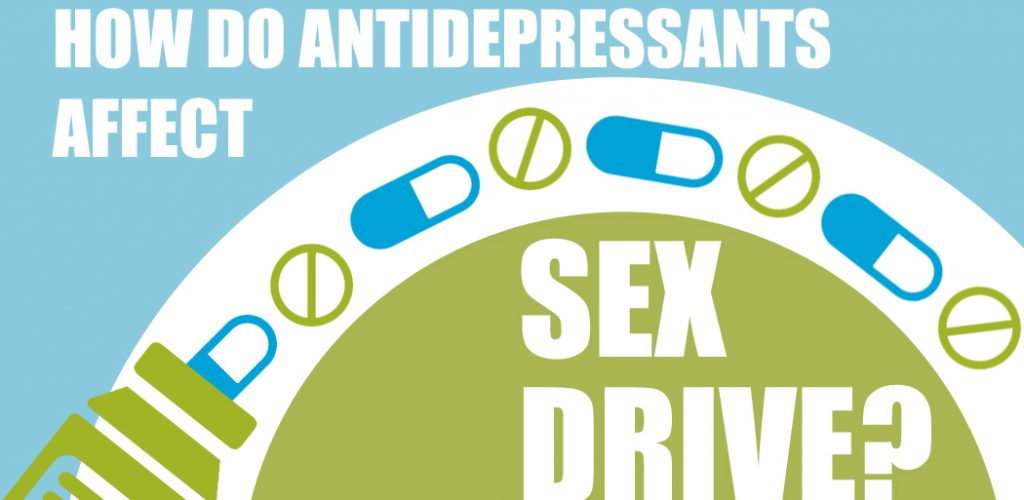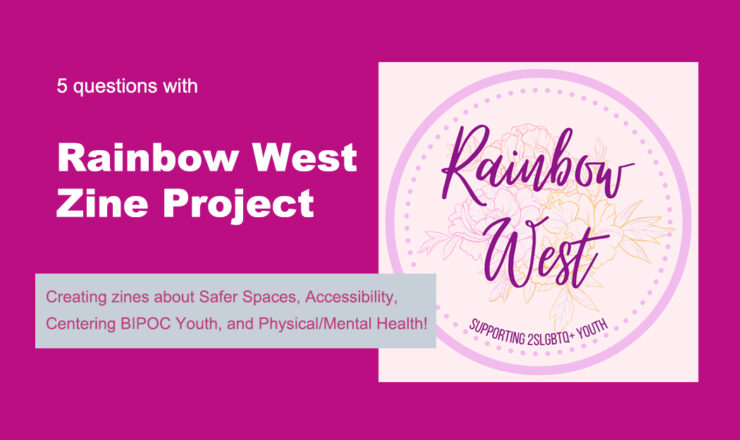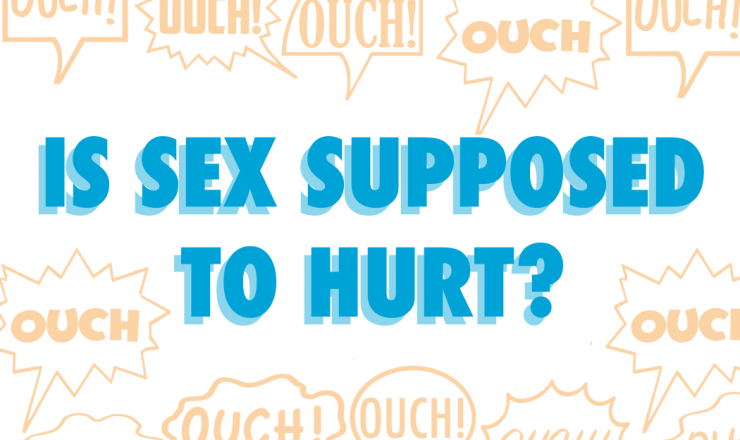

Antidepressants are commonly prescribed as a way to treat mental health conditions (e.g., depression, anxiety, etc.). For some people, these are exactly what works to help relieve them of their symptoms. For others, it may be a trade off of relieving their symptoms but adapting to living with different side-effects. And some people don’t get any relief from medications. Everyone reacts uniquely to antidepressants, depending on the brand, type of pill, and their own body chemistry.
A commonly listed side effect for antidepressants is a decrease in overall drive or desire for sex. This can look like:
People react to these changes in different ways. Some are okay with them, some adapt, and some will talk to their clinicians about changing their treatment plan (more info on that below). For people who want to self-manage and adapt to their new sex drives, here are some strategies:
Side effects that you experience in the first couple of months may go away as your body adjusts to new medication. If you want, you can set yourself a deadline for when you want to check back in with your clinician about it. It may be useful to ask yourself, “How long am I willing to wait to see if these side effects go away?” Maybe things’ll change by the deadline, or maybe that’ll be time to check about changing your treatment plan.
Sometimes side effects only happen in the hours after you take your medication. For example, if you normally have sex at night, taking pills in the evening might more directly impact how or if you have sex in the following hours. If you notice that the timing of taking antidepressants impacts your sex drive, you might want to see about adjusting when you take your pills, or when you make time to have sex so that the two things don’t clash.
A change one person’s sex drive can have a big impact on a relationship or on the connection partners have. Talking together about it can help people navigate or avoid feelings that can come up if sexual advances, desires, or experiences have a sudden shift.
Beyond talking to partners, checking in with friends, clinicians, or therapists can also be really helpful. Sharing your concerns and frustrations can be a good way to get feedback on strategies, or even just to get a better/broader understanding of the many different ways sex can play a part in people’s lives. A lot of the struggle with a change to sex drive can come from feeling like there’s pressure that sex needs to play a specific kind of role in our relationships. Talking to others can show how other people adapt or adopt to changes and uniqueness in their sexual relationships.
If a decreased sex drive is not an acceptable side effect, then it could definitely be worth checking in with your clinician about fixing the problem. Things you might want to ask about include:
Sometimes it can take a few tries to find the dosage that doesn’t affect your sex drive, while still providing relief from your mental health condition.
Different brands of antidepressants can interact with your body in different ways. Some might cause a decrease in sex drive, but some might not. It’s worth keeping in mind, though, that this means you could have other kinds of side-effects.
Both options could involve a bit of trial-and-error until you find the medication or combination of medications that fits best with your body and are right for your mental health.
| It’s okay to not have a sex drive! |
| There’s nothing inherently wrong in not having a sex drive. A decreased sex drive may be a difficult side-effect for people who highly value or prioritize having sex. But for others who don’t feel like sex is a big deal, having a decreased sex drive may be an acceptable trade off for relief from a mental health condition. And that’s okay! Even without antidepressants as a cause, it is okay to have a high, low, or even no sex drive. |
Please Note: Many of these resources use very gendered and heternormative language when it comes to discussing sex, bodies, and relationships.
If you have questions about this topic, feel free to contact one of our peer educators. [Link]
Last Updated: June 2020

Rainbow West Zine Project is a series of four wonderful zines to represent youth voices and art on the topics of Safer Spaces, Accessibility, Centering BIPOC, as well as Mental and Physical Health. Check them out!

“Is Sex Supposed to Hurt” is an ongoing series to get unique perspectives on painful sex. Today we’re talking to Abby about her experience with pain during vaginal sex.

The fabulous folks at SOY H.E.A.T. have created some brand new videos to help folks talk about Allyship, Intersectionality, and Pronouns!